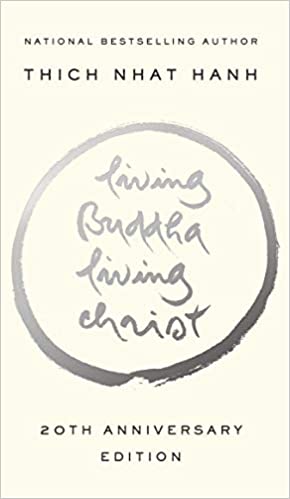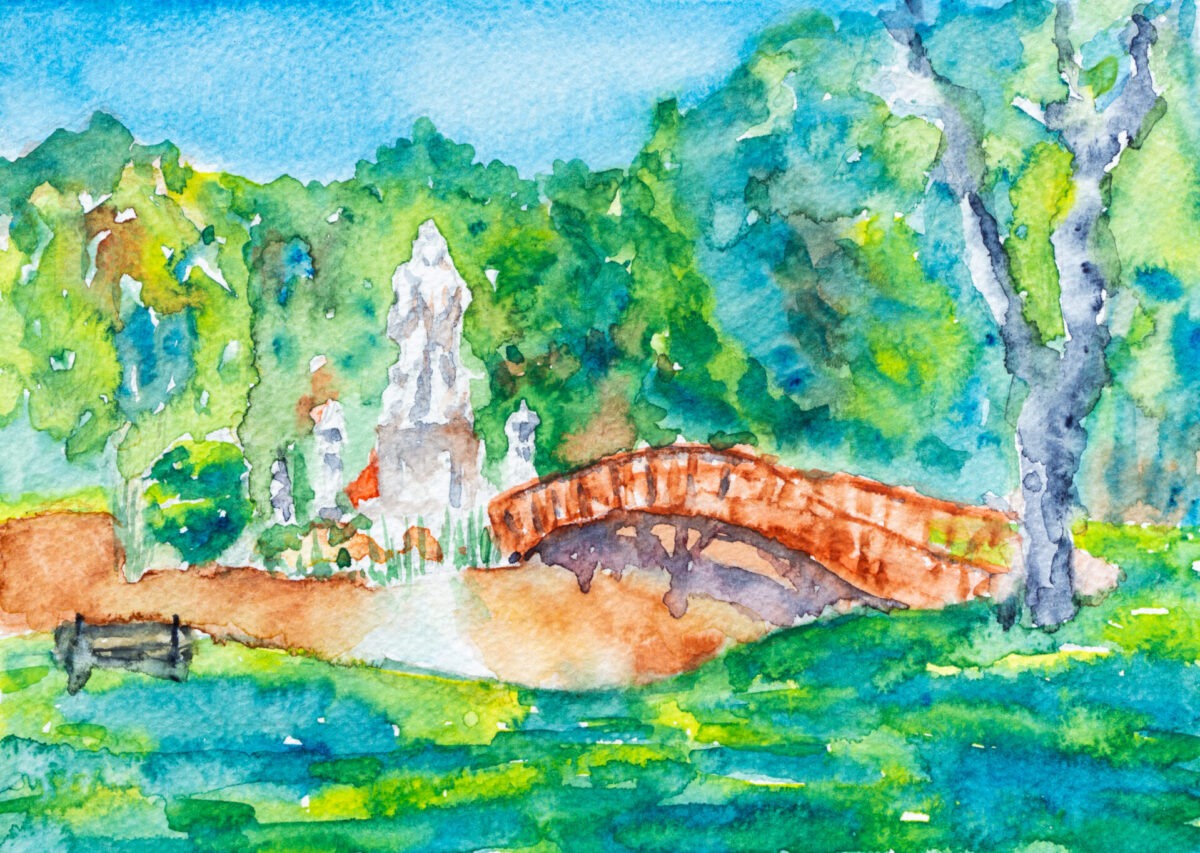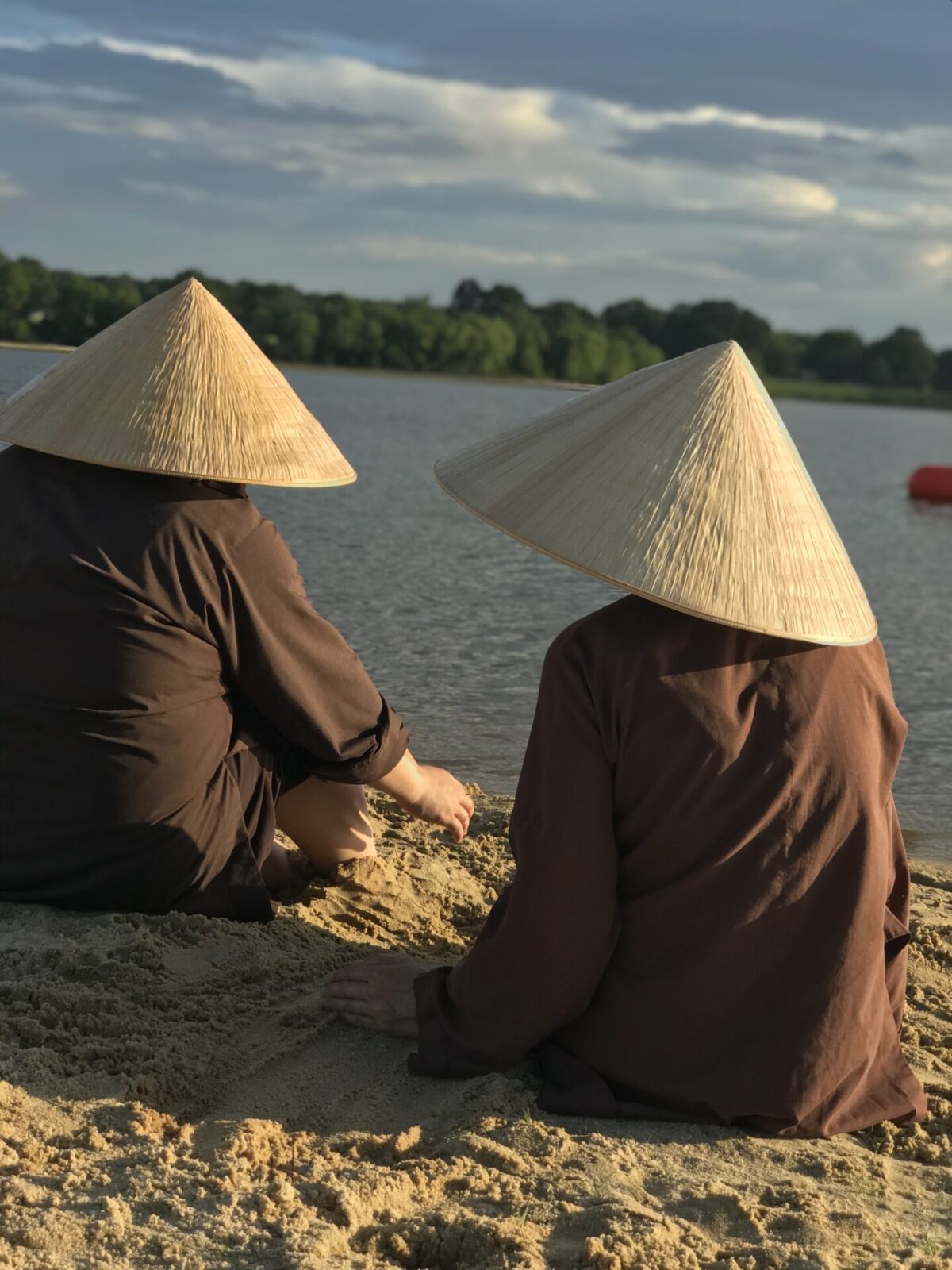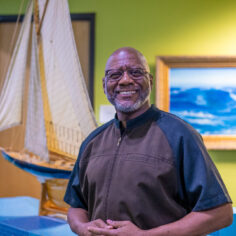Herbert Gooden shares the transformative effects of a BIPOC retreat at Magnolia Grove Monastery.
By Herbert Gooden on
My story begins in 1989 when I woke up one morning in an addiction recovery facility. Although I had a traditional Black Belt Southern Baptist Christian beginning, there I sat. After trying to live a Christian life as I understood it, I was internally questioning how I could have ended up in a drug and alcohol rehabilitation center.
Herbert Gooden shares the transformative effects of a BIPOC retreat at Magnolia Grove Monastery.
By Herbert Gooden on
My story begins in 1989 when I woke up one morning in an addiction recovery facility. Although I had a traditional Black Belt Southern Baptist Christian beginning, there I sat. After trying to live a Christian life as I understood it, I was internally questioning how I could have ended up in a drug and alcohol rehabilitation center. Today, I am free, and the BIPOC Retreat at Magnolia Grove moved the needle for me.

My journey searching for freedom allowed me to reach into the bags of many traditions. I became a licensed and ordained Christian minister. I became a Unity Church and recovery chaplain. I studied various disciplines and facilitated many spiritual groups. This helped because I was torn between Christianity and Buddhism. Although the Buddhist teachings were having a positive effect on my spiritual and psychological life, I had been so brainwashed that Jesus was good and Buddha was wrong. Around the year 1997 I came upon Thích Nhất Hạnh’s Living Buddha, Living Christ. It was a breath of fresh air, revealing the similarities between Zen Buddhism and Christianity. Thầy’s teaching on the similarities of Buddha and Christ freed me of my internal war. It brought me peace. I have not looked back. I have stopped feeling like a hypocrite. I can embrace both. I call myself a hybrid. I walked away from the pulpit. I left the Christian pulpit because I lost my zeal for traditional Christianity. I no longer believed in original sin, or that all are lost except Christians. I began to be open to the universal love of all. It relieved a fair amount of stress; Eastern teachings and disciplines positively affected me. Thầy’s teaching on mindfulness meditation became essential and impactful in my personal life and spilled over into my Christian faith. The Buddhist teachings became part of my moral compass.
But I was shaken approximately six years ago. I had been free of my addiction for fourteen years. I had returned to the pulpit. I had been treading relatively well between the Western and Eastern teachings. I had entered an institution seeking a higher degree in biblical studies.
A professor made a statement that penetrated my core. He stated that he had gay people who attended his church, and they loved them, they contributed financial support, but they could never become members. I sat there, stunned for a moment. The first thought that came to my mind was that one of my daughters is gay. Secondly, my heart went out to those who were gay and who attended this church. Thirdly, I was saddened. I knew then that I would leave that institution, not knowing until that moment that the pastor was practicing exclusiveness.
In 2021, I began a two-year Mindfulness Meditation Teachers Certification Program. One of the sessions included The Five Mindfulness Trainings. Six months were devoted to BIPOC training (part of the Diversity, Equity, Inclusion and Accessibility Track) that I needed to familiarize myself with. Before my training, I was not aware of the BIPOC acronym. My peer group in the training consisted of people of color from other countries. They shared how they were oppressed because of their color. Within the program, I was educated on the different forms of racism and oppression and their impact on people of color. I gained a better understanding of internalized, interpersonal, institutional, and structural racism. In 2022, my mentor asked if I had been on a retreat recently. I looked up retreats and discovered Magnolia Grove Monastery.

In April 2022, I reached the other shore at Magnolia Grove Monastery. As I headed to Mississippi from Alabama, I didn’t know what to expect. As I arrived at the property, I knew I was where I was supposed to be. It was a BIPOC retreat. A fellow attendee mentioned that there would be a transmission of The Five Mindfulness Trainings, which I was not aware of. My body system was informing me that I was safe; I felt an ease throughout my body. I felt open and unguarded. I saw all the different flowers of all sexual orientations. My instinctual defense calmed. Realizations of unity in suffering overcame me. Joy entered my heart.
Eager to hear a Dharma talk, I was happy, and peace overcame me. But listening to Sister Peace didn’t last long; I fainted during her talk. I had never fainted in my life. All I remember is looking up from the floor and Sister Bội Nghiêm asking, “Mr. Herbert, are you all right?” Two angels attended and took me to the hospital for safety. One was a doctor and my advocate, ensuring I was thoroughly checked out. They found nothing organic wrong with me. I had experienced an overwhelming feeling of joy that I had not experienced in decades.
I had seen Sister Peace in a documentary. The Universe consistently arranges things beyond our planning. I was fortunate to be part of Sister Peace’s Dharma sharing group. I joked with her that her talk was so good I passed out. I felt at home—in the presence of my family and fellow journeyers. We were there to learn how to relieve or manage our suffering while strengthening ourselves to help others. Sister Peace led masterfully. She listened and guided us, allowing plenty of space for personal insights. On April 10, 2022, I received my Five Mindfulness Trainings certificate in a ceremony etched in my memory for life.

Through my experience at Magnolia Grove Monastery and the profound teachings of Thích Nhất Hạnh, I have come to understand the deep interconnectedness and interdependence of all existence. Mindfulness has become a guiding principle in my daily life as I strive to cultivate compassion for myself and others. I advocate for nondiscrimination and for recognizing and honoring the inherent worth and dignity of every being, irrespective of race, gender, or sexual orientation. Embracing imperfection and vulnerability with kindness, I practice nonviolence in all facets of existence, promoting peaceful conflict resolution and preventing harm toward all beings. Gratitude fills my heart as I acknowledge the impermanence of all things, and I strive to be fully present in every moment, practicing deep listening without judgment. Letting go of fixed ideas and possessions, I engage in applying Buddhist principles to social and environmental issues, endeavoring to promote peace and justice throughout the world. Through one transformative BIPOC retreat at Magnolia Grove, I have crossed to the other shore.


